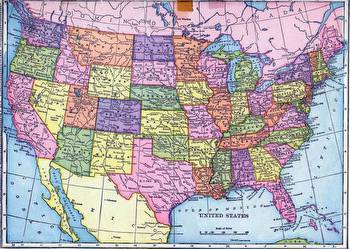Lack of Online Casinos Partly Blamed for WynnBet Closures

The US gambling industry has seen tremendous expansion in recent years. There has been an increase in the number of sites opening, whether it be for sports betting or online casinos. However, it’s a competitive market and Wynn Resorts have announced they will close their WynnBet sites in eight of the 12 US states in which they operate.
Wynn Resorts have said that their online and retail sports betting businesses in both Massachusetts and Nevada won’t be affected. They have resort casinos in both of those states.
Julie Cameron-Doe is the Wynn CFO and explained why the decision had been taken. The cost incurred in attempting to acquire new customers and running marketing campaigns are both major reasons. That’s particularly been the case when it comes to getting a good share of the sports betting business.
Getting a good share of the market is a tough task. BetMGM, Caesars Sportsbook, FanDuel and DraftKings are the market leaders and often have more than 80 percent of the total wagers made and revenue achieved. WynnBET have not been able to break into the top four, struggling to get to ten percent.
Another problem has been the lack of states that have legalized online igaming with only six doing so. Those are New Jersey, Pennsylvania, West Virginia, Delaware, Connecticut and Michigan. Only online poker is allowed in Nevada with Caesars Entertainment operating the only licensed site.
The CFO bemoaned the “dearth of iGaming legislation in the US,” compared to the growth seen in sports betting. This is another reason for Wynn Resorts to cut down their digital gaming operations.
With their share not at the level they would like, a decision had to be taken. The CFO said that they had decided that “there are higher and better uses of capital deployment for Wynn Resorts shareholders.”
Now begins the task of ending their operations in West Virginia, Tennessee, Virginia, Colorado, Arizona, Louisiana, New Jersey and Indiana. There could yet be more closures with the online gaming and sports betting businesses in Michigan and New York remaining “under review.”
In New Jersey, online casinos were made legal in 2013. The majority of other US states are yet to go down that route. Five years ago, a US Supreme Court judge ruling paved the way for over 30 US states to make sports betting legal. The ruling saw the final decision given to the individual states rather than the often unwilling Federal Government.
Why are states so reluctant to legalize online casinos? One fear is that if that did happen, it would cause jobs to be lost at land-based casinos. Making online casinos in the US legal as per agamble could therefore be an unpopular move.
There’s also a degree of protecting land-based casinos. They struggled during the COVID pandemic with several periods seeing them closed. It’s been a battle for them to recover post pandemic so giving them additional competition might hinder that recovery.
However, The MD of the Spectrum Gaming Group, Michael Pollock, believes that online gaming could lead to more people becoming interested in gambling and then also going to land-based casinos. This, he says, would lead the generation of “employment and sales tax revenue and a host of other tax revenues.
The subject was covered at a recent National Council of Legislators From Gaming States Conference. They believe that there could be some positive news in 2023. New York, Illinois, Iowa and Indiana are states that could move towards legalization. There are other states that may also be changing their minds on the subject.
Howard Glaser is the head of government affairs for Light & Wonder. He’s disappointed at the lack of progress that has been made. The launches in New Jersey, Michigan and Pennsylvania have all been hugely successful. “These each went from zero to billion-dollar markets in a very short time,” he said.
That’s a fact illustrated by revenues for the US gambling industry in 2022. 38% of revenues (totaling $12 billion) came from iGaming. While US states aren’t rushing to make online casinos legal, this is causing another problem.
The American Gaming Association has reported that the handle for illegal unlicensed sites is $330 billion a year. That’s not just seeing tax revenue lost but those illegal sites offer little protection for their customers. The hope is that the future will see more states make online casinos legal both for the sake of the industry, state revenues and customer protection.































